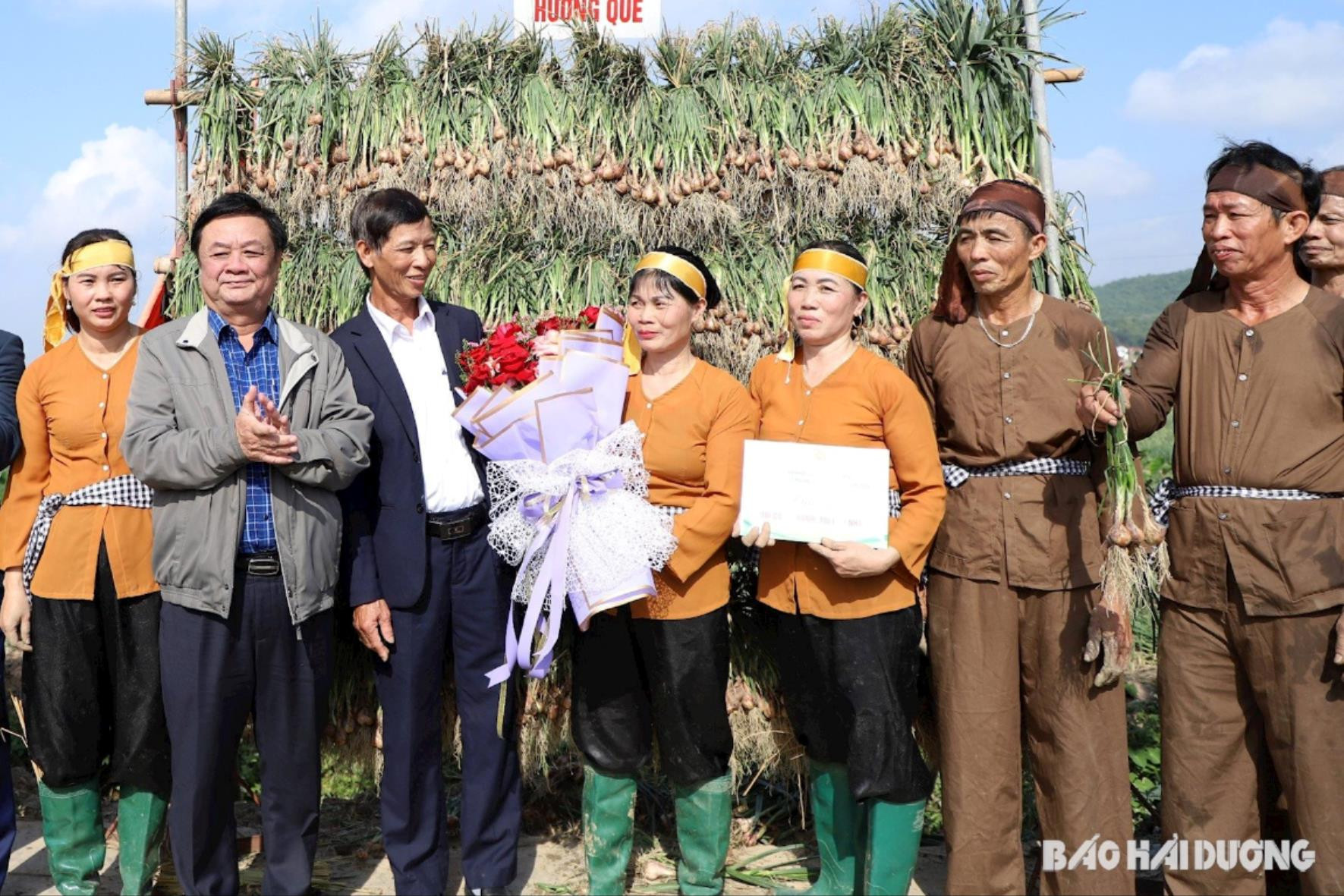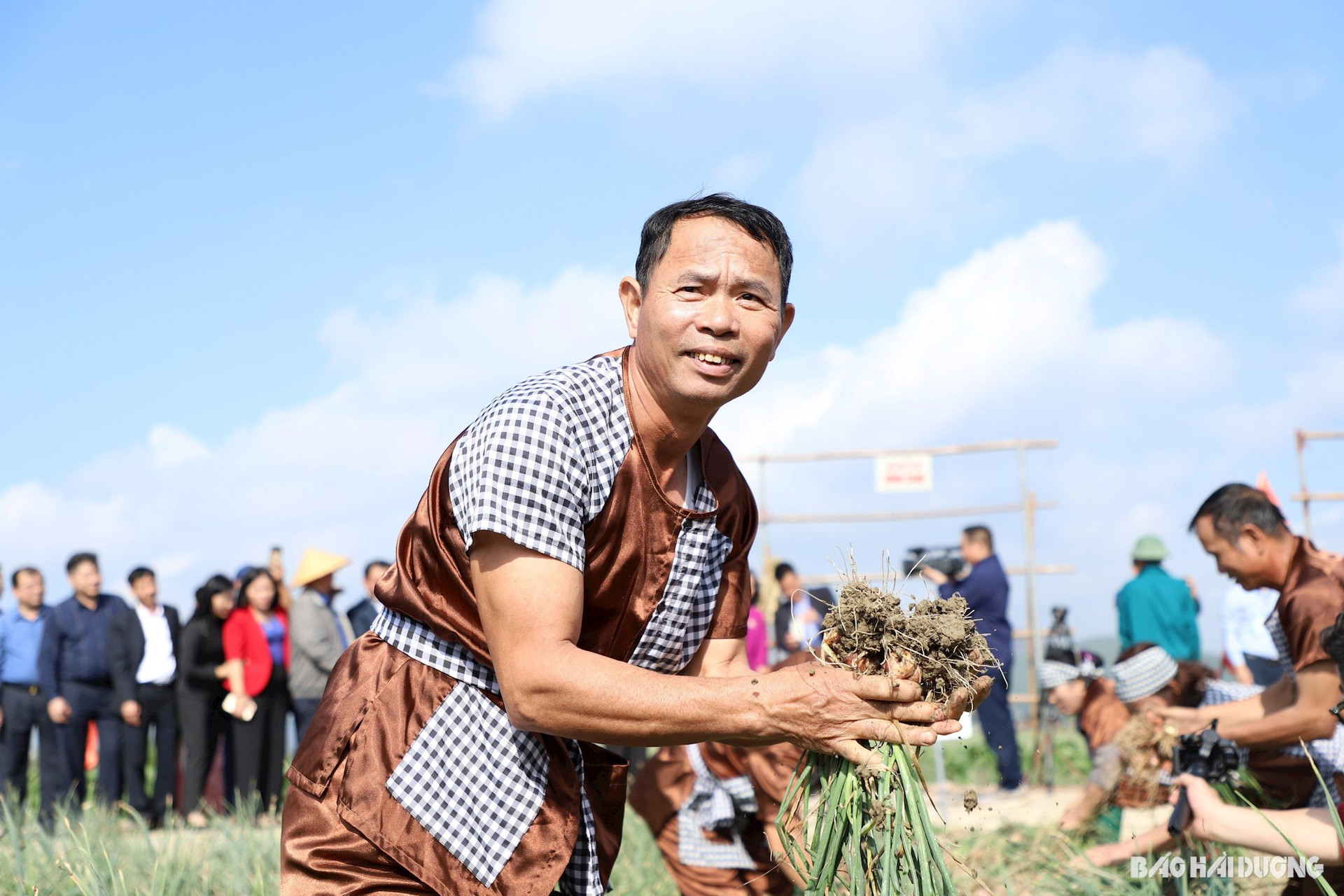Knowledge is understanding, and understanding is infinite, endless. To change agriculture and farms, farmers must first change because farmers are the subject of agriculture.

“Our country is an agricultural country. People come from the fields, forests and mountains, following nature, blending into nature, gradually forming many generations of skilled workers, with a wealth of experience, deep knowledge of land and cultivation, called old farmers and knowledgeable farmers”.
The Vietnamese people's tradition of studiousness has been passed down through folk songs and proverbs for thousands of years of building and defending the country:“To be a wise person/It is also thanks to learning all the ways and knowledge”.
Looking back at the history lessons, the two-country champion Mac Dinh Chi, the first-ranked mandarin Luong The Vinh, the third-ranked mandarin Yen Do Nguyen Khuyen, President Ho Chi Minh... are always shining examples of the spirit of learning, self-study and lifelong learning.
The country's agricultural sector's remarkable achievements started from the experience accumulated over many generations, to a journey of learning and absorbing the world's best. An agronomy professor proudly said: "Vietnamese rice has gone to school, grown up and achieved success. And it can be said that now Vietnamese rice has returned home to pay respect to its ancestors." Today, the world is constantly changing, the change is so fast that new things have not yet taken shape before newer ones appear. In such a context, in addition to experience, it is necessary to update knowledge and cultivate new skills every day, every hour.
“Looking at the sky, looking at the earth, looking at the clouds/ Looking at the rain, looking at the sun, looking at the day, looking at the night”. In the past, farmers often relied on observation and comparison experiences through each crop season, so they easily fell into a passive and waiting position. Today, with scientific discoveries and technological solutions, farmers can change from passive to proactive, both limiting risks and quickly adapting to changes in weather and diseases. Today, with connections through smart devices, farmers can know information on input and output prices, and clearly understand market standards and regulations.
Thus, intellectualization is extremely important in the era of the knowledge economy. Knowledge is simply understanding, and understanding is infinite, endless. An artist who lived for over a hundred years concluded: "What I know is just a grain of sand, what I don't know is like the ocean." That said, learning is a need, and more than that, learning is also a necessary condition, a mandatory requirement in an ever-changing world. During his lifetime, Uncle Ho reminded everyone: "The world is constantly progressing, whoever does not learn is falling behind" and "If you do not learn, you cannot keep up, work will push you behind."

Look at the remarkable advances in science and technology in agriculture. Grasp the way of thinking about multi-value integrated agriculture. See how the world applies achievements in digital transformation, the 4.0 industrial revolution to fields, gardens, and farms. It is time for traditional agriculture, the "hands-on" farming methods to be adjusted and updated to suit the new trend. So where and from whom should change in agriculture begin? In an agricultural promotion book, a conclusion is explained: to change agriculture and farms, farmers first need to change because farmers are the subject of agriculture.
In the agricultural revolution towards advanced agriculture, farmers are not just pure farmers, but agricultural workers with diverse skills and positive attitudes. Farmers will be the ones who harmoniously combine mental labor with manual labor. Farmers will know how to multiply the value many times on the same piece of land, the same garden, the same shrimp and fish farm.
Many people often pessimistically compare their country's agriculture, farmers, and countryside with those of other countries. Comparison is necessary to stimulate change, but then what? Everyone needs to do something, needs to join hands for the long journey ahead. Let's go back to the countryside, come to the farmers' side to share the necessary knowledge and skills for farmers. Let's go out into the fields to be "farmer friends" to evoke positive values about the tradition of studiousness, about the meaning of "lifelong learning". Let's come together in community spaces to connect farmers together, together to escape the trap of a fragmented, small-scale, spontaneous agriculture. That is the journey of intellectualizing farmers.
Scientists from institutes and experienced agricultural experts come to the countryside, giving quality seeds, useful and easy-to-implement solutions, and instructions on the process of planting, raising livestock, and aquaculture. Be dedicated and persistent in "simplifying" academic matters in research topics, making things that are inherently complex intuitive, easy to understand, and easy to implement for farmers. Come to the fields, feel the "breath" of the fields, start with farmers by asking questions and together find satisfactory answers. That is also the journey of intellectualizing farmers.
Experts and lecturers in universities should step out of their campuses, come to farmers, and inspire new ways of thinking and better ways of doing things. Let's tell farmers about climate change, market fluctuations, and changes in consumer trends. Let's help farmers know how to bring agricultural products to the market at the lowest cost and with optimal value. Let's return to farmers with the mindset of being farmers' children, speaking in everyday language, familiar to farmers. That is also the journey of intellectualizing farmers.
The press and media agencies come to farmers, fishermen, foresters, salt farmers, etc. to cite stories about farming in the world, thereby spreading new models and new values. Analyze for farmers that "good harvest, low price" is the eternal law of the market and how to overcome that curse. Let the articles have a deep, realistic perspective, helping people move towards high-quality agriculture, reducing emissions, and linking with green growth. Let's inspire decent production methods, thinking about the health of consumers and the community, and resolutely saying no to the destruction of natural resources. That is also the journey of educating farmers.
“Learning to know, learning to do, learning to assert oneself, learning to live together” is the philosophy of learning in the world. On the journey of intellectualization, farmers are also proactive in village and hamlet affairs, crystallizing the image of artisans, workers, and intellectuals. On the journey of intellectualization, farmers are also sowing: “Learning is the seed of knowledge, knowledge is the seed of happiness and prosperity”.
LE MINH HOAN (Minister of Agriculture and Rural Development)